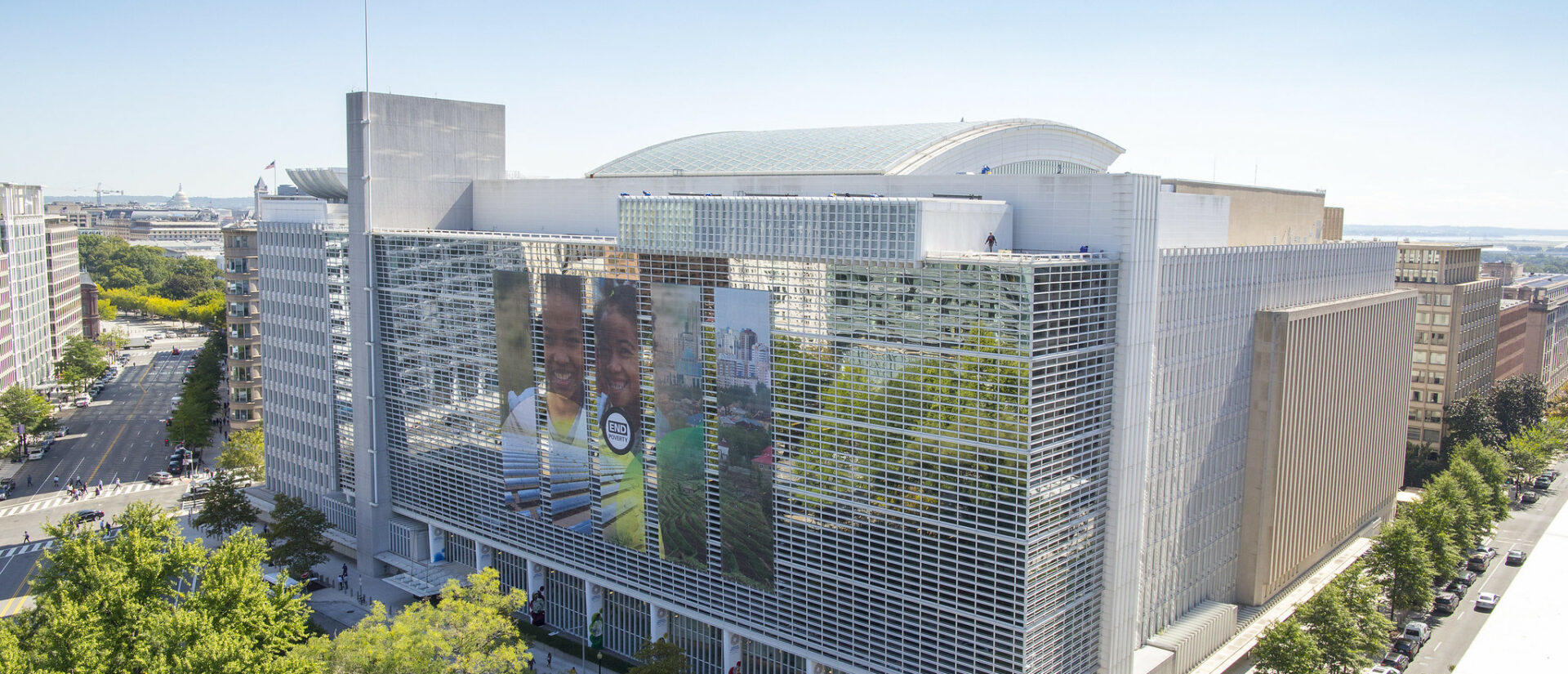
Reviews of World Bank Group’s accountability mechanisms too important to be done in secret
You would be forgiven if you didn’t know that the International Finance Corporation (IFC), the World Bank’s private sector lending arm, was reviewing its accountability framework, including the effectiveness of its independent accountability mechanism (IAM), the Compliance Advisor Ombudsman (CAO). This process has largely taken place behind closed doors, while the mechanism is far too important to communities and the relevance of the World Bank Group to be reviewed in secret, writes Kristen Genovese (SOMO) in an op-ed for the Bretton Woods Observer(opens in new window) .
Despite the importance of the process, in particular given the numerous documented cases in which IFC financing has resulted in harms to communities, the only publicly available information about the review is a brief announcement(opens in new window) made in October by the IFC and the Multilateral Investment Guarantee Agency board of directors. Within the scope of the review, the board should be commended for going beyond the CAO and its role and examining how the IFC responds to CAO processes. Yet, the limited information about the process, combined with the precedent set by the protracted and similarly clandestine review of the Inspection Panel, the independent accountability mechanism for the World Bank’s public-lending side, raises doubts about its outcome. This view was detailed in an October letter(opens in new window) to the IFC’s board of directors signed by 75 civil society organisations. Excluding the Bank’s stakeholders and the people who helped to create and are the beneficiaries of these accountability systems from these discussions is not only ironic, but deeply problematic.
The announcement reveals that the review will be led by a team of external experts, who will “seek input from a multi-stakeholder group.” The composition of the review team(opens in new window) , chaired by Peter Woicke, former Executive Vice President of the IFC and member of the CAO’s Strategic Advisors Group, inspires some confidence, but it might be the only thing that does. The team’s terms of reference, which presumably contain a timeline for the review, have not been disclosed, nor has the board committed to disclose the team’s final recommendations. Moreover, there will be no public consultation on the recommendations, departing from standard practice for IAM reviews. Instead, the team will seek input from a multi-stakeholder group, whose composition has not been disclosed and who have not been given any information about the consultation process. There is an email address though, in case you want to submit your comments, in the hope that they correspond to the issues that are actually on the table, which have also not been shared.
There is a lot at stake with this review. One priority is to maintain the CAO’s independence and structure. The head of the CAO is currently selected by an external committee of representatives from the private sector, civil society, and academia, who make a recommendation to the president of the World Bank Group. This, and provisions that prevent a revolving door with IFC, give affected communities confidence that the CAO will handle their complaints in a way that does not favour the institution that they believe caused them harm.
Broadening accountability and remedy
The structure of the CAO, which houses compliance, dispute resolution and advisory functions under one roof, ensures a streamlined process for complainants and helps them decide whether dispute resolution or compliance review (i.e. the extent to which the IFC complied with its own regulations) best suits their needs. This reflects the notion that regardless of the function, the outcome of a complaint process should be: To prevent harms, provide effective remedy to project-affected people and the environment, and to ensure institutional accountability as well as continuous improvement in preventing and addressing social and environmental risks and impacts of development finance institution-supported projects.
That does not mean the CAO’s processes could not be strengthened. For example, complainants should have the same opportunity to review and comment on the draft compliance report as the IFC – which is consistent with best practice at other IAMs. The CAO should also be transparent about the eligibility criteria applied to financial intermediary complaints.
But the biggest priority is for the IFC to assume responsibility for the harms caused to complainants. To its credit, the IFC has taken some important steps recently to enhance its focus on environmental and social risk, and has adopted structural changes that – if implemented well – could better prevent harm to communities. But these changes are not enough. The IFC’s homepage claims credit for outcomes that would not have occurred without IFC involvement. Yet, when something goes wrong in an IFC-financed project, it points the finger at its client and cries “not our fault”. We will see if the courts buy that argument. In the meantime, the IFC must engage in dispute resolution processes, when invited by the parties, and ensure that its responses to compliance investigations result in meaningful changes for complainants. It can do both by establishing a remedy fund that could be used to supplement what the client has offered. One small but important step the IFC could take is to require its clients to disclose the availability of the CAO. The CAO and the Inspection Panel are too important to communities and the credibility of the World Bank Group to be reviewed in secret.
This op-ed originally was originally published in the Bretton Woods Observer(opens in new window) (Winter 2019).
Kristen Genovese co-authored an op-ed on the same issue(opens in new window) for Devex.
Related news
-
 SOMO submits input for update of UN List on corporate involvement in Israeli settlementsPosted in category:NewsPublished on:
SOMO submits input for update of UN List on corporate involvement in Israeli settlementsPosted in category:NewsPublished on: -
Chain of consequences Published on:
 Joshua RosenzweigPosted in category:Publication
Joshua RosenzweigPosted in category:Publication Joshua Rosenzweig
Joshua Rosenzweig
-
Fuelling the flames in Gaza Published on:
 Lydia de LeeuwPosted in category:Publication
Lydia de LeeuwPosted in category:Publication Lydia de Leeuw
Lydia de Leeuw


